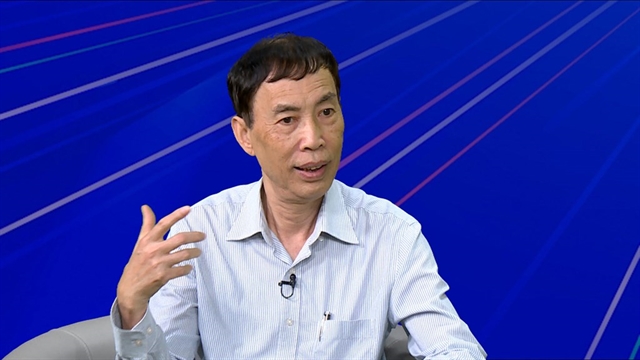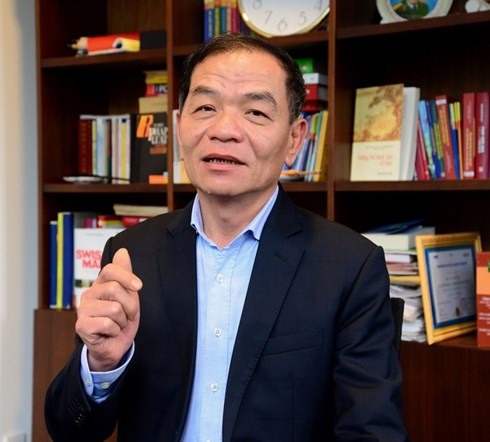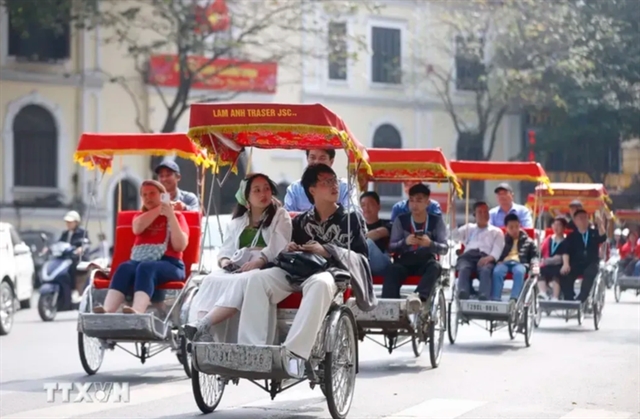 Opinion
Opinion

Lê Thanh Vân, a member of the National Assembly Finance and Budget Committee, speaks to VOV online about the pro and cons of merging provincial departments that have similar functions.
 |
| Lê Thanh Vân. — Photo vov.vn |
Lê Thanh Vân, a member of the National Assembly Finance and Budget Committee, speaks to VOV online about the pro and cons of merging provincial departments that have similar functions.
What are your views on the proposal to merge or integrate provincial departments with similar functions?
An important principle in the operation of an office or department is the clear duty for each small group or each staff member. That’s why in my opinion, the most important thing is to have a clear job description for each group member.
Principally speaking, the first thing an office must do is to define its assigned tasks and from that the office management board will decide how many staff they need. All these have already been covered in the Party’s Resolution. However, in certain offices, the personnel work has not been done properly. In such cases, in my opinion, the office chief boss should be blamed.
However, thanks to the strained state budget, expenditure pressure and the people’s dissatisfaction with the services that they have received, the Party Central Committee realises that it is high time to restructure municipal/provincial organisations.
According to the Ministry of Home Affairs, 17 provincial departments could be merged while the remaining the Departments of Justice; Natural Resources and Environment; Labour, War Invalids and Social Affairs should be organised in the same format. How do you respond to the idea of re-arrangement of provincial departments?
I should say this is an issue concerning the re-arrangement of a specific administrative unit. The proposal of the Ministry of Home Affairs, I feel, could end up retaining the same number of staff and agencies as the departments merge, without requiring departments to seriously review their different functions and assigned missions in order to eliminate redundancies.
The tendency has been that as society becomes bigger and bigger the State becomes smaller and smaller – it means the State’s functions are being narrowed down, particularly the economic functions. In areas that the State should not control, State control should be eliminated.
In short, the merger plan is aimed at streamlining the State. But what is more important is that we have to ask questions like, are the functions of these departments are appropriate? In my opinion, it is time for us to sit down and draw lessons learned.
Some people have expressed their doubt that the merger may not be better than the status quo. How do you respond to that?
The Resolution of the 6th Plenum of the Party Central Committee and Resolution 39 of the Party Politburo have both talked about the need to streamline the provincial governments’ organisations.
In my opinion, any public services – if they are not essential, they could be delegated to the society (the people) to do it and this has already been practiced in other countries.
What is more important is the personnel work. If we are able to select a team of capable and reliable provincial leaders, I’m confident that everything will go smoothly and there will be no chances for corruption or power abuse to raise their heads.
Some people have raised the idea that the Ministry of Home Affairs should make the decision on the merger of several provincial departments into one, not the Provincial People’s Council. How do you respond to that suggestion?
Principally speaking, I agree with the Ministry of Home Affairs’ proposal. It is a fact that Việt Nam now has 63 provinces and cities but they don’t have the same geographical advantages nor development potential or population distribution. That’s why we should only come up with certain principles and then it is up to the local government to make their own decisions. — VNS
.




